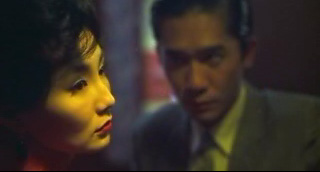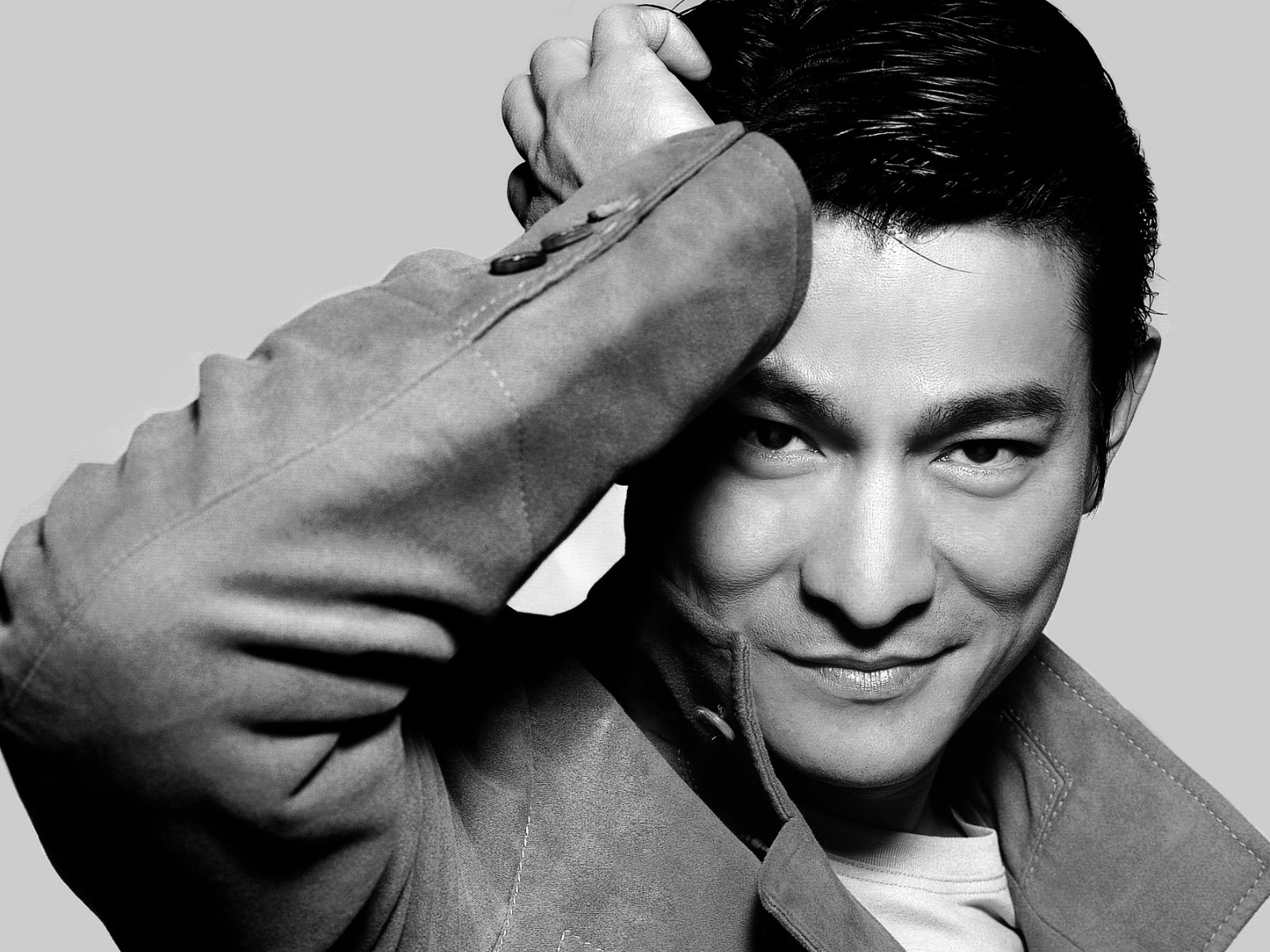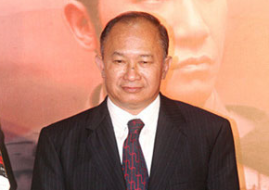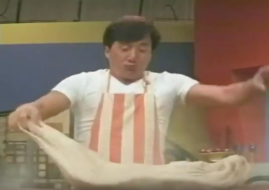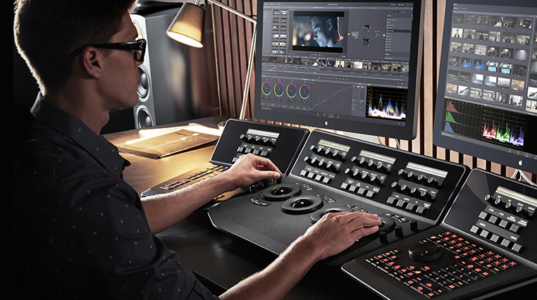In The Mood For Love (2000)
Director: Wong Kar-Wai
Script: Wong Kar-Wai
Producer: Wong Kar-Wai
Cinematography: Mark Lee Ping-bin, Christopher Doyle
Cast:
Tony Leung Chui-Wai (Chow Mo-Wan), Maggie Cheung Man-Yuk (Su Li-Zhen), Rebecca Pan (Mrs. Suen), Lui Jan (Mr. Ho), Siu Ping-Lam (Ah Ping), Roy Cheung Yiu-Yeung (Mr. Chow’s voice)
Cantonese: Dut Yeung Nin Wa
Mandarin: Hua1 Yang4 Nian2 Hua1
Country: Hong Kong
Language: Cantonese
Running Time: 98 min
Merit
• Best Actor, Tony Leung Chui-Wai, Cannes 2000
• Grand Prix Technique, Chris Doyle, Mark Li Ping-Bing and William Chang Suk-Ping, Cannes 2000
~~~~
SYNOPSIS:
There is much that is new in In the Mood and much that looks back to Wong’s earlier films. Narrative structure, though present, seems to figure less and less. Here, Mr. Chow (Tony Leung Chiu-Wai) and Mrs. Chan (Maggie Cheung Man-Yuk) move into neighbouring apartments in Hong Kong on the same day in 1962. Through frequent encounters in tight hallways, claustrophobic staircases and rain-soaked alleyways, they grow closer, soon realizing that their respective spouses are carrying on an affair with each other. We hear the spouses, but never see more than the backs of their heads.
 After Chow and Chan make their discovery, everything changes, but everything stays the same. Oblique conversations gain in intensity, but nothing can be said to “happen.” Chan is trapped by an all-night mahjong party in Chow’s tiny bedroom, but they only talk. They meet for dinners. They rehearse conversations in which they play each other’s spouses, to practice how Chan will confront her husband about his infidelity. Though role-playing affords them the only moments of physical flirtation they allow themselves, their lives entwine. Chow, a journalist, starts to write a martial arts novel, and moves to a hotel room. He enlists Chan to help him with his writing. Their intimacy is refracted through shared fantasy: this time through jointly imagining Chow’s novel. Chow takes a new job in Singapore and leaves Hong Kong. A series of epilogues bring the story forward, first to 1963, then to 1966.
After Chow and Chan make their discovery, everything changes, but everything stays the same. Oblique conversations gain in intensity, but nothing can be said to “happen.” Chan is trapped by an all-night mahjong party in Chow’s tiny bedroom, but they only talk. They meet for dinners. They rehearse conversations in which they play each other’s spouses, to practice how Chan will confront her husband about his infidelity. Though role-playing affords them the only moments of physical flirtation they allow themselves, their lives entwine. Chow, a journalist, starts to write a martial arts novel, and moves to a hotel room. He enlists Chan to help him with his writing. Their intimacy is refracted through shared fantasy: this time through jointly imagining Chow’s novel. Chow takes a new job in Singapore and leaves Hong Kong. A series of epilogues bring the story forward, first to 1963, then to 1966.
But this is not a film that tells a story. It shows a way of life, and reconstructs a set of memories: memories of Wong Kar-wai’s own youth in early 60s Hong Kong; memories of Wong’s parents’ life in Shanghai, filtered through a Hong Kong that revived Shanghaiís transplanted urbanity after 1949 (and reconstructed in present-day Thailand); memories of the characters, as they might look back from the epilogues through memory’s haze at a reconstructed, romanticized and elliptically conjured past.
—Shelly Kracier, Full review at A Chinese Cinema Page
~~~~
REVIEWS:
 With each consecutive film, Wong Kar-Wai has proved himself to be a more and more fascinating and exciting filmmaker. With this film, Wong Kar-Wai has created an absolute masterpiece, a film that transcends categorization as it stimulates the senses to near-orgasm.
With each consecutive film, Wong Kar-Wai has proved himself to be a more and more fascinating and exciting filmmaker. With this film, Wong Kar-Wai has created an absolute masterpiece, a film that transcends categorization as it stimulates the senses to near-orgasm.
It’s a movie that belongs up there with the greatest of films, along with great works like Hiroshima, Mon Amour, The Bicycle Thief, Grand Illusion, Chinatown, L’Avventura, The Blade, Yojimbo, and The Vertical Ray of the Sun. Wong and his long-time partners, cinematographer Christopher Doyle and production designer/editor William Chang, have created images of unique and stunning beauty, visions of a bygone era that glow with color.
Two of the best actors in the world shine in the film. Maggie Cheung and Tony Leung Chiu-Wai play neighbors in overcrowded 1960s Hong Kong. They are both surprised to learn that their respective spouses are having an affair with one another. At the same time, this realization of a shared secret brings them closer and closer together.
 The performances are top-notch. The structure and design of the film are both wholly unique. It’s amazing to say that this work surpasses Wong Kar-Wai’s previous film achievements, but it does, hopefully elevating Wong’s artistry to new levels.
The performances are top-notch. The structure and design of the film are both wholly unique. It’s amazing to say that this work surpasses Wong Kar-Wai’s previous film achievements, but it does, hopefully elevating Wong’s artistry to new levels.
About three quarters of the way through the production Christopher Doyle left for another film commitment. Cinematographer Mark Li, who had already worked for greats like Hou Hsiao Hsien and Tran Ahn Hung, took over quite seamlessly. The visual transition is completely seamless, serving as a further compliment to the works of two of the world’s greatest cinematographers. It is unclear as of yet who will be lensing Wong’s later productions, but hopefully, Wong and Doyle will continue their electric collaboration.
As a side note, the title of Wong’s next film, 2046, appears as the number of the hotel room that Tony Leung stays in for this film. Wong has admitted to a kind of a link in his mind between this period piece and the science-fiction future world of his upcoming project.
In the Mood for Love is probably the most breathtakingly gorgeous film of the year, dizzy with a nose-against-the-glass romantic spirit that has been missing from the cinema forever. As in Mr. Wong’s film, yearning becomes the epoxy that holds the material together. This film is a sweet kiss blown to a time long since over, a time that may have existed only in the movies, with ballads recorded in mono while hand-sewn clothing lay perfectly over the bodies of the stars. In the Mood for Love is just that.
–Elvis Mitchell, New York Times (September 30, 2000)
” …a visually exquisite chamber piece…an atmosphere of claustrophonic desire”
–Liam Lacy, Toronto Globe & Mail (September 6, 2000)
“If you’re in the mood for a blushing art house romance, you’ll fall for it, too.”
–Katrina Onstad, Stephen Cole, and Scott Feschuk, National Post (Canada) (September 6, 2000)
“a movie suffused with a ravishing physical beauty and an infinite sadness”
–Patrick Z. McGavin, IndieWIRE.com (June 26, 2000)
“In the Mood for Love is a lush-looking film…filled with yearning and unfulfilled emotions. [It] is…a compelling film that deserves attention.”
–Magic8, Hong Kong Movie Database
~~~~

